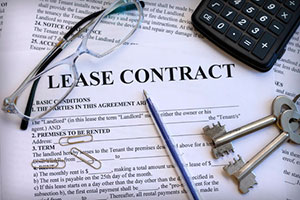 Managing multiple units or properties can be an overwhelming, yet rewarding experience. These responsibilities are often put on the shoulders of the property managers that run them. Property managers must juggle a variety of tasks, such as handling leases, tracking rent payments, and keeping up with maintenance. This requires the skills of both real estate and business management. This outline provides an in-depth understanding of property management and what the job entails.
Managing multiple units or properties can be an overwhelming, yet rewarding experience. These responsibilities are often put on the shoulders of the property managers that run them. Property managers must juggle a variety of tasks, such as handling leases, tracking rent payments, and keeping up with maintenance. This requires the skills of both real estate and business management. This outline provides an in-depth understanding of property management and what the job entails.
What Are My Roles As a Property Manager?
A property manager is a person or firm who has been hired to operate real estate property for a fee. This usually occurs when the owner of a real estate property is unable to attend to landlord responsibilities themselves or is not interested in doing so. Property managers have a number of responsibilities, not limited to dealing with rent, finding and screening tenants, handling leases and evictions, ensuring maintenance and repairs are completed in a timely manner, and supervising other property staff.
The day to day of a property manager can greatly vary. Some days property managers will be required to screen tenants and read through applications. Other days, a property manager will need to deal with emergency repairs or unexpected move outs. Regular inspections of buildings must be completed to make sure that the properties are safe and in good physical condition. It is wise for property managers to build a ‘time cushion’ into their schedule to accommodate all unplanned tasks that may arise.
Rent
Setting Rent:
 Pricing a rental property correctly will attract tenants to a vacant property. While you want to make as much money as possible, pricing too high can deter prospective tenants. Base the rent off of a variety of factors, such as the cost of living in your area, the age of the home and its appliances, what amenities are included, and if the home has recently undergone updates. You will also want to determine whether you will collect a deposit, as well as first and last month’s rent. Property managers often collect these fees upfront to safeguard themselves in the event that the tenant causes damage to the property or decides to move out before paying the last month’s rent.
Pricing a rental property correctly will attract tenants to a vacant property. While you want to make as much money as possible, pricing too high can deter prospective tenants. Base the rent off of a variety of factors, such as the cost of living in your area, the age of the home and its appliances, what amenities are included, and if the home has recently undergone updates. You will also want to determine whether you will collect a deposit, as well as first and last month’s rent. Property managers often collect these fees upfront to safeguard themselves in the event that the tenant causes damage to the property or decides to move out before paying the last month’s rent.
Collecting Rent:
As a property manager, you will need to setup a system to collect rent each month from tenants. There are several practices used to do this effectively, such as having tenants mail the check, drop it off to a disclosed location, pay online with a debit or credit card, or have the amount withdrawn directly from their bank account. If you prefer to streamline this process, one of the latter options is more efficient. You will also want to decide how to handle late rent payments. Charging a modest fee each day the payment is late prompts tenants to pay their delinquent rent. If a tenant has a long history of late payments, you may need to seek legal assistance to start the eviction process.
Adjusting Rent:
Rent prices are not set in stone and can be adjusted overtime. In fact, it is recommended to increase or decrease rent in certain situations. Start by making sure that your rent increase is in compliance with all state and federal laws. Note that some rent control areas have specific requirements regarding rent increases and the frequency in which you can make them. When increasing rent, it is required to give the tenant sufficient notice in compliance with the law. There may also be time when you choose to decrease rent, such as when a tenant offers to work for the property manager performing maintenance or when a tenant proves their reliability or credit worthiness.
Tenants
Finding Qualified Tenants:
 Finding qualified tenants quickly can help diminish vacancies and gaps in rent payments. Many property managers rely on eye-catching and informative property listings to draw in potential candidates. When creating these listings, include quality photographs or a visual tour of the property, as well as a full list of features. You may also want to give current tenants an incentive to bring in new tenants by offering a bonus or discount on their rent.
Finding qualified tenants quickly can help diminish vacancies and gaps in rent payments. Many property managers rely on eye-catching and informative property listings to draw in potential candidates. When creating these listings, include quality photographs or a visual tour of the property, as well as a full list of features. You may also want to give current tenants an incentive to bring in new tenants by offering a bonus or discount on their rent.
Screening Tenants:
Screening potential clients is crucial to weed out the ‘bad’ ones and keep your property free from damage. Start by having prospective clients complete tenant applications that include current and previous employers, current income, lifestyle information, personal references, and contact information. You may also want to run a credit and background check by choosing a certified tenant screening company. Do not use discriminatory practices when screening prospective tenants. A property manager cannot refuse to rent to a tenant based on their race, skin color, religion, national origin, disability, sex, or familial status.
Evicting Tenants:
If you are a property manager and would like to evict a tenant, you must have a legal reason for doing so. This means that you cannot evict a tenant simply because you do not like them for one reason or another. Every area has different eviction laws that property managers must follow. Check with the specific laws in your area to determine if your reasoning is just. The most common reasons for evictions include late payments or no payments, unreasonable damage to the property, or frequent complaints from other tenants or neighbors.
Tenant Complaints:
When a tenant is experiencing a problem, the complaint often falls into the lap of the property manager. Knowing how to effectively handle these complaints can help prevent the situation from escalating. Treat every situation unique as not all tenants react the same way to conflict. Listen to the complaint and be respectful towards the tenant’s issues. While you do not need to be onsite 24 hours a day, tenants should be able to reach you during normal business hours. Address any complaints in a timely and professional manner. Know that most complaints relate to management, the property itself, or to other tenants.
Leasing
Handling Leases:
 Residential lease agreements are put in place to protect both the tenant and property manager. The lease should include property, tenant, and landlord details and be signed by both the tenant and property manager. Include the term or length of the contract, the amount and frequency of rent, and other stipulations such as if the tenant is allowed to smoke or have pets in the home. Provide a copy of the lease to the tenant and maintain a signed copy for your own records. Remember, the more detailed a lease agreement is, the less likely there will be confusion or disputes during the lease term.
Residential lease agreements are put in place to protect both the tenant and property manager. The lease should include property, tenant, and landlord details and be signed by both the tenant and property manager. Include the term or length of the contract, the amount and frequency of rent, and other stipulations such as if the tenant is allowed to smoke or have pets in the home. Provide a copy of the lease to the tenant and maintain a signed copy for your own records. Remember, the more detailed a lease agreement is, the less likely there will be confusion or disputes during the lease term.
Security Deposits:
When setting a security deposit amount for a property, take various details into consideration such as how new the property is, the history of the tenant, and the terms you set for security deposit refunds. When determining the ideal amount, understand that you should charge enough to protect yourself from property damage or nonpayment, but not too much as to deter clients from applying. Some features and amenities may warrant a higher security deposit, such as private parking, a doorman or elevator in the building, having a fully furnished unit, or new construction.
Adjusting Leases:
There may come times when you may need to adjust a lease to accommodate changes at a property, such as after a death in a tenant’s family or when appliances become inoperable. Both the property manager and tenant can propose changes to the lease or rental agreement at any time. Rental agreement changes can typically be made without the tenant’s consent but property managers must provide the tenant with the legally required notice. Although a tenant has the right to propose changes to a lease or rental agreement, the property manager is under no obligation to accept the proposed terms.
Terminating Leases:
Terminating a lease or rental agreement can be a long and complex process. State and federal laws govern how property managers terminate these contracts and all steps must be carefully followed to prevent voiding the eviction. Property managers may have the right to terminate a lease if the tenant does not pay rent, breaches a clause in the rental contract, or violates a legal responsibility. If both the tenant and property manager agree to the terms of early termination, a lease can be broken with minimal to no damage. However, not all forms of termination are agreed upon by the tenant, such as in the case of an eviction.
Even if a tenant is months behind on their rent, a property manager cannot legally evict a tenant without the proper legal documents. An eviction notice is often the first step. This document should include a description of the offense, a time limit to solve the issue, the date in which the notice was serviced, and the signature of the property manager. In most states, a landlord must give a tenant written notice 20 to 90 days before the termination date. If a tenant refuses to move out after an eviction has been legally performed, you may have to begin an eviction lawsuit and serve the tenant with an eviction complaint and court summons.
Office
Managing Client Files:
 As property management is a business, it is important to treat it as such. Managing tenant files is a critical part of property management that can be completed with software or a traditional filing system. Limit those who have access to tenant files to ensure that all personal information is kept secure. If kept on a computer, use passwords to secure these files and have backups readily available in the event that the system crashes. If kept in a traditional file cabinet, always keep it locked and store the key in a secure place.
As property management is a business, it is important to treat it as such. Managing tenant files is a critical part of property management that can be completed with software or a traditional filing system. Limit those who have access to tenant files to ensure that all personal information is kept secure. If kept on a computer, use passwords to secure these files and have backups readily available in the event that the system crashes. If kept in a traditional file cabinet, always keep it locked and store the key in a secure place.
Managing Budget:
Property management involves a great deal of costs relating to the safety and upkeep of the building and grounds. Some of the most common costs include maintenance fees, appliance and property upgrades, property damage costs, landscaping fees, and costs associated with facilities. To properly maintain a budget, it is important to estimate the cost of maintaining and improving clients’ properties and stay within this budget as best as possible. It is the property manager’s responsibility to balance expenses so that clients can achieve profits from their properties.
Supervision
Employees:
 Managing properties on your own can be time-consuming. This is why many property owners rely on assistance from a variety of people. From maintenance men and landscapers to accountants and in-office employees, having staff can significantly cut down on a property manager’s responsibilities. Start by implementing a rigorous hiring process that involves reference and background checks. Employees can be found through job boards, newspaper ads, or even word of mouth. The employees you hire should be effective communicators and show respect and consideration for the tenants.
Managing properties on your own can be time-consuming. This is why many property owners rely on assistance from a variety of people. From maintenance men and landscapers to accountants and in-office employees, having staff can significantly cut down on a property manager’s responsibilities. Start by implementing a rigorous hiring process that involves reference and background checks. Employees can be found through job boards, newspaper ads, or even word of mouth. The employees you hire should be effective communicators and show respect and consideration for the tenants.
When hiring new employees to assist you with property management responsibilities, you will want to consider all aspects of your new hires. To attract and maintain staff, consider offering benefits or perks, such as access to healthcare or paid vacation. Before hiring, always take the time to talk to the candidates about their ability to complete the job effectively. Explain what you expect from them in terms of employee roles and responsibilities. Be open and honest about work schedules, salaries, and other aspects to ensure that everyone is on the same page. You will also want to hire people that you get along with as you will need to work as a team.
Vacant Properties:
Vacant properties means money lost and time wasted. As a property manager, you will want to learn how to fill vacancies quickly and effectively. This can be accomplished by offering specials or services to fill vacancies, such as the first month with no rent. If there a reason that a property remains vacant, such as the presence of damage, you will want to take the time to remedy these problems. When properties remain vacant, it is the responsibility of the property manager to look after the vacant property to ensure that no vandalism takes place. When vacant properties are well cared for and updated, the length of these vacancies can be drastically decreased.
As a property manager in Northern Virginia, you need to be able to dedicate your time to learn the business and keep up with property maintenance issues. This can be done through a proper work schedule, updated budget, and commitment to the job.









































